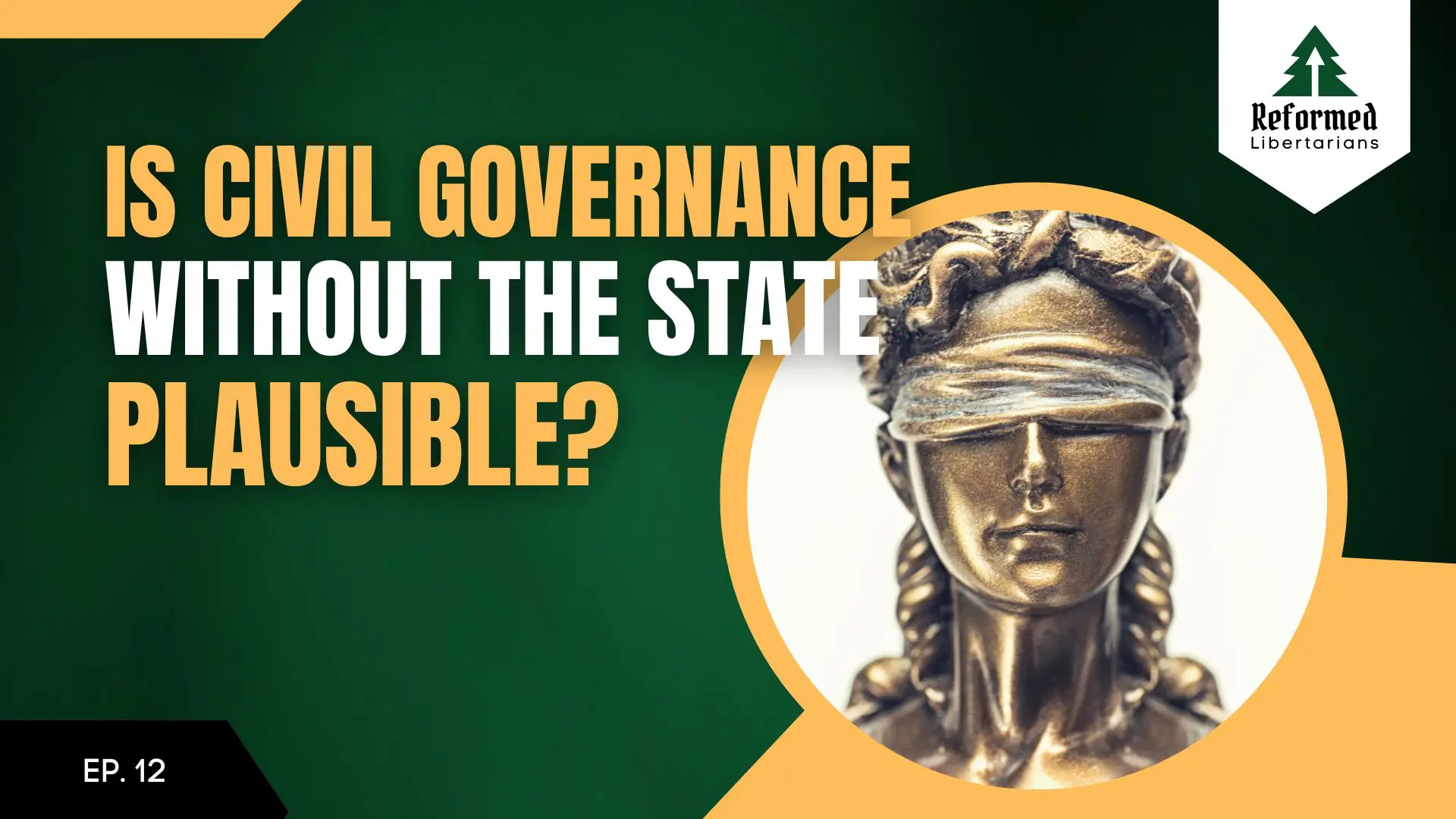

A discussion of the main points of Kerry Baldwin’s article on the plausibility of stateless civil governance and the common difficulty in imagining such a society. We talk about factors that may contribute to the failure of imagination such as the mere-exposure effect, the Overton window, and plausibility structures. Also mentioned are several examples of historically existing non-monopolistic civil governance. Spontaneous order is explained in terms of a consistent sphere sovereignty, and we provide resources on how civil governance can be practically and realistically provided without the state.
https://reformedlibertarians.com/012
| 00:00 | Introduction |
| 00:32 | Episode description Article discussed: Inconceivable! The Plausibility of a Stateless Society, by Kerry Baldwin |
| 01:18 | Previous episodes in series 1. Law and order, and the question of legitimacy 2. Human sinfulness, and the question of necessity 3. Economics and social hierarchy, and the question of inevitability |
| 01:57 | Main points of article on failure of imagination, and the question of the plausibility of stateless (non-monopolistic) civil governance |
| 03:10 | Reasons for difficulty in imagining non-monopolistic civil governance Bias towards the familiar |
| 05:21 | The Overton window The range of thinkable ideas in a society |
| 08:58 | Plausibility structures Social realities that reinforce or help a belief seem true |
| 10:14 | What about the roads? |
| 10:42 | Historical examples of non-monopolistic civil governance Previously mentioned: Ancient Ireland Law Merchant Not-so-wild West Other examples: Quaker Pennsylvania Medieval Iceland Zomia (south Asian highlands), audio [ index for The Libertarian Tradition podcast ] |
| 13:01 | Division of labor makes stateless society more plausible |
| 13:46 | Somalia is better-off without a state |
| 14:58 | Recap on Sphere Sovereignty The Reformed Libertarianism Statement |
| 18:55 | Polycentric emergent (“spontaneous”) societal order Popular-level article Video essay Bibliographic essay Example of the price system |
| 22:31 | Practical outlines for how non-monopolist civil governance can be provided Chaos Theory, by Robert Murphy [audio] The Machinery of Freedom [2nd edition pdf], by David Freidman Video summary |
The Christians for Liberty Network is a project of the Libertarian Christian Institute consisting of shows and hosts offering various perspectives on the intersection of Christianity and libertarianism. Views expressed by hosts and guests do not necessarily reflect the view of the organization, its staff, board members, donors, or any other affiliates (including other hosts or guests on the network). Guest appearances or interviews of any incumbents, officials, or candidates for any political, party, or government office should not be construed as endorsements. The Libertarian Christian Institute is a 501(c)(3) non-profit organization and does not endorse any political party or candidate for any political, government, or party office. For information about the Libertarian Christian Institute’s core values, please visit this page.
), //libertarianchristians.com/wp-content/plugins/smartquizbuilder/includes/images/template6-latest.jpeg))

), https://libertarianchristians.com/wp-content/plugins/smartquizbuilder/includes/images/template6-latest.jpeg))








































), https://libertarianchristians.com/wp-content/plugins/smartquizbuilder/includes/images/template6-latest.jpeg))
), https://libertarianchristians.com/wp-content/plugins/smartquizbuilder/includes/images/template6-latest.jpeg))
), https://libertarianchristians.com/wp-content/plugins/smartquizbuilder/includes/images/template6-latest.jpeg))





Sign up and receive updates any day we publish a new article or podcast episode!